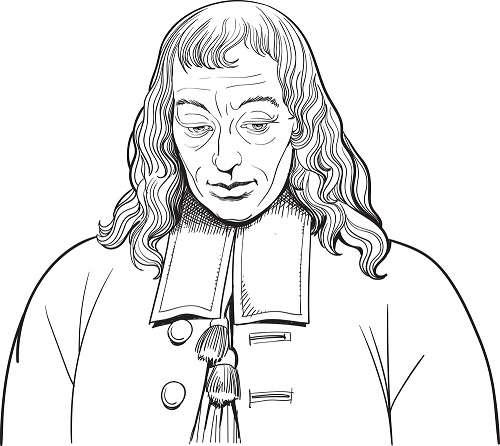
Pascal and the absurd notion that the principles of justice vary across state borders (1669)
Found in: The Thoughts of Blaise Pascal
The French philosopher and mathematician Blaise Pascal (1623-1662) points out that artificial lines drawn on a map do not invalidate moral laws which are derived from the nature of man. It is “absurd” to think I have the right to kill a foreigner because my sovereign orders me to do so:
Justice
Theft, incest, infanticide, parricide, all have found a place among virtuous actions. Can there be any thing more absurd than that a man should have the right to kill me because he lives across the water, and because his prince has a quarrel with mine, although I have none with him? There are no doubt natural laws, but fair reason once corrupted has corrupted all. Nihil amplius nostrum est; quod nostrum dicimus, artis est (“There is no longer anything which is ours; what I call ours is conventional”). Ex senatus consultis, et plebiscitis crimina exercentur (“It is by virtue of senatus-consultes and plebiscites that one commits crimes”). Ut olim vitiis, sic nunc legibus laboramus (“Once we suffered from our vices; today we suffer from our laws”).